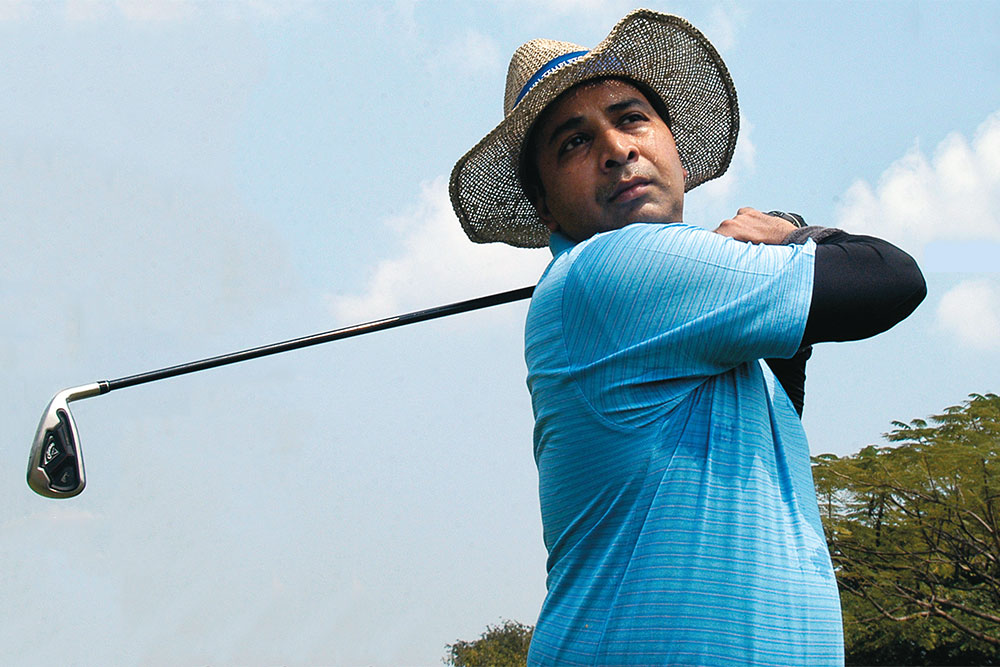On quiet Sunday afternoons, away from the stress of work, Sukumar Rajah, managing director and CIO, Asian equity, of Franklin Templeton, may be found playing a relaxing round or two of golf. It’s been a decade-long passion, discovered after a life-long enjoyment of different sports. It’s easy to assume that golf offers a tranquil escape from the adrenalin-charged world of investing — surely, no two things could be more disparate.
 Interestingly, Rajah finds not only similarities but helpful insights. “Investment is, strictly speaking, not only a function of the left brain,” he says, referring to the theory that the two halfs of the brain control different ways of thinking — the left is considered logical and analytical, while the right is creative. “Many of us tend to think investment is about logic alone but it’s more than that. A fair degree of thinking at multiple levels is required and that’s true also of golf.” Golf, says Rajah, takes a combination of skills and it’s a tricky business. “It’s a game of strategy as well as creative thinking, which makes it rather like investing.” He started playing golf 10 years ago but rues that he doesn’t get enough time for the game. Still, he manages to get away for golf-related events organised by his company.
Interestingly, Rajah finds not only similarities but helpful insights. “Investment is, strictly speaking, not only a function of the left brain,” he says, referring to the theory that the two halfs of the brain control different ways of thinking — the left is considered logical and analytical, while the right is creative. “Many of us tend to think investment is about logic alone but it’s more than that. A fair degree of thinking at multiple levels is required and that’s true also of golf.” Golf, says Rajah, takes a combination of skills and it’s a tricky business. “It’s a game of strategy as well as creative thinking, which makes it rather like investing.” He started playing golf 10 years ago but rues that he doesn’t get enough time for the game. Still, he manages to get away for golf-related events organised by his company.
So, is sport the perfect escape from the result-driven world of investment? Rajah disagrees that the function of investment can be defined by deadlines or targets. “It is a quality-driven function, not a quantity-driven one,” he says. “A good investment manager may take a while to arrive at his decision but if he gets it right, that one good decision is worth 50 other calls that may have been taken by others.” He offers Warren Buffett as a prime example: the investment guru may invest in just one company through a whole year but it is likely to be a decision that surpasses most others. “I don’t think targets and pressures at work should come in the way of rest and sleep. An investment manager is not going to take better decisions if he forgoes sleep and, instead, spends all that time on thinking about companies.”
Another point Rajah makes is that golf, unlike most other games, pits you against yourself. “Unlike tennis or cricket, getting better at golf requires us to work around our handicaps — it’s not about defeating an opponent, which is true of all other sports,” he says. “It could be any kind of sport,” he adds. “I have had an interest in different games and I think they all provide the right mix of challenge and enjoyment, along with the opportunity to meet like-minded people.” The health benefits, it turns out, are just a bonus — in the case of golf, all that walking around and fresh air and sunlight.
Golf, for Rajah, is a journey in self-improvement. It not only makes golf endlessly interesting, there is much to gain from it at a less conscious level. Reading books on investment will help, but only to a certain extent, he feels. It [what is said in books] has happened to someone else, it’s someone else’s point of view, and it is theoretical to us. Sports, on the other hand, require us to think things through in real time.”
What Rajah likes most about golf is the chance to keep learning something new. “That’s always true, no matter how many times we play,” he says. “There will be a particular stroke, an angle or a distance that you learn to handle, or you develop the ability to handle different weather conditions such as wind, humidity and rain. There is beauty and perfection in movement. Moreover, we win and lose in games, as we do in life.”











